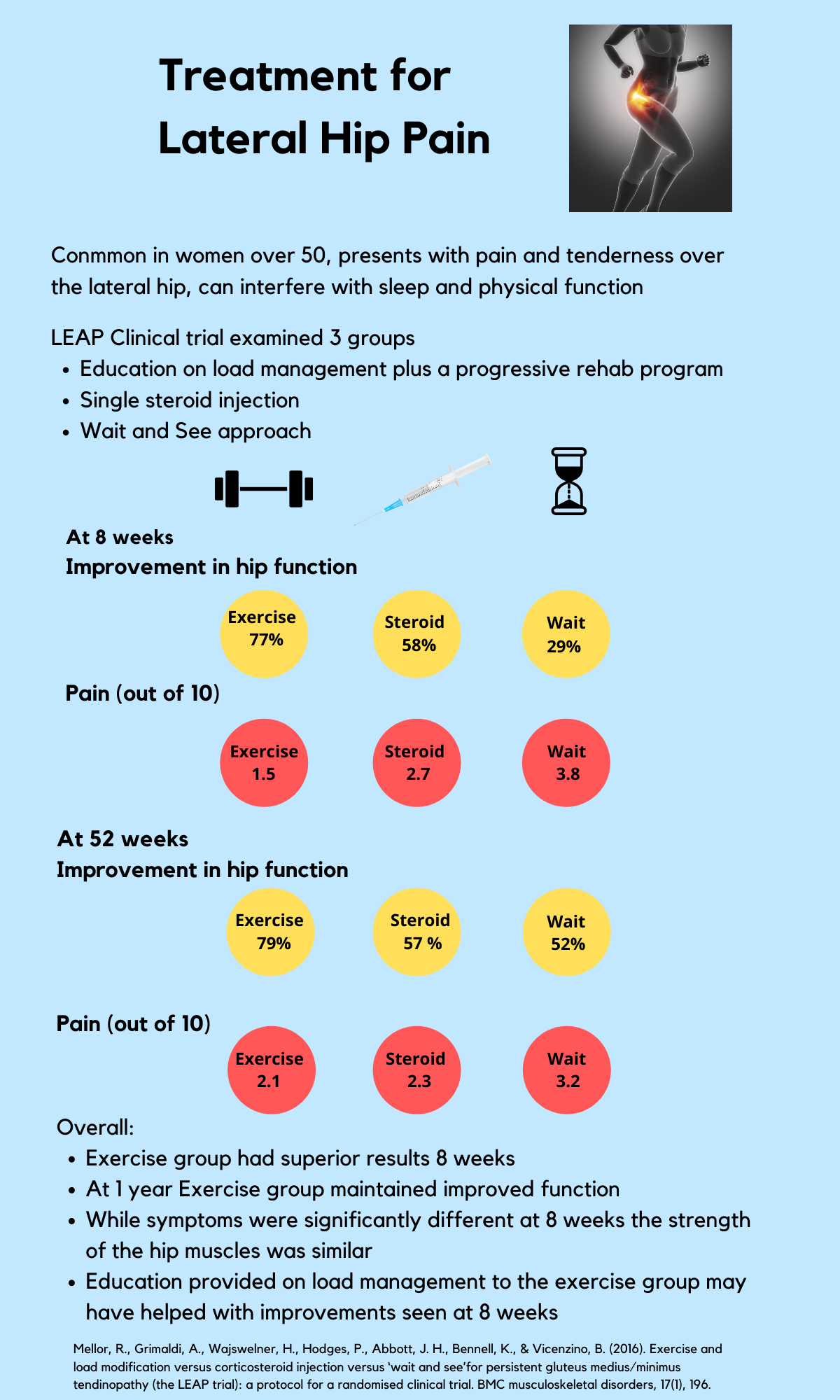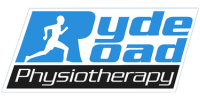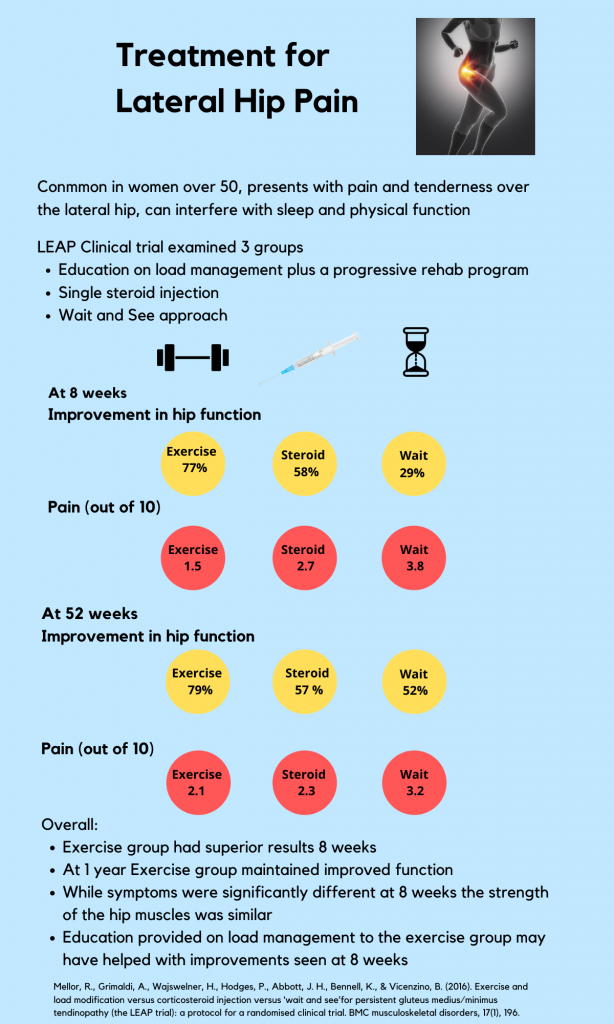Lateral hip pain can be quite a difficult condition to treat and may significantly affect sleep and physical function. The symptoms are believed to be caused from tears or hardening of the gluteal tendons and bursitis is also a common finding.
The evidence suggests the condition is caused by compression of the tendons at the lateral hip when the leg moves across the body, for example sitting with a crossed leg or standing with a hitched hip. The amount of stress on the tendons can be increased by poor control of hip and gluteal muscles
Steriod injections have been a common intervention, in the short term they can reduce pain levels, but the long term outcomes are no better than a wait and see approach.
The LEAP trial was conducted to evaulate treatment options and is summarised below.


